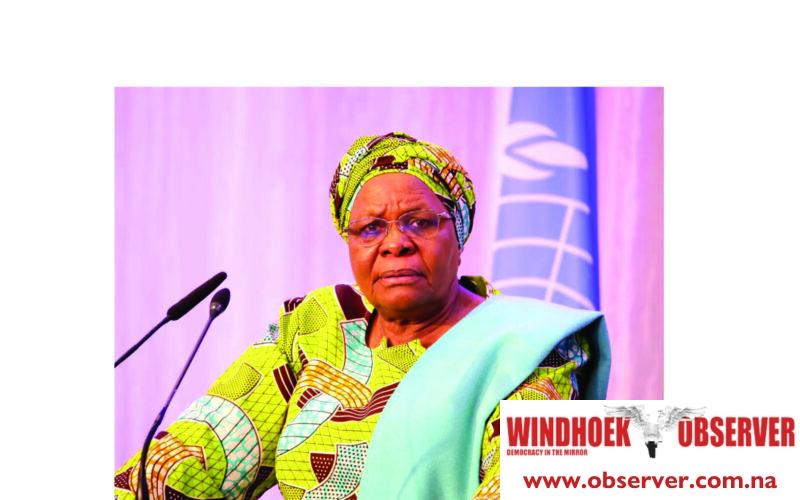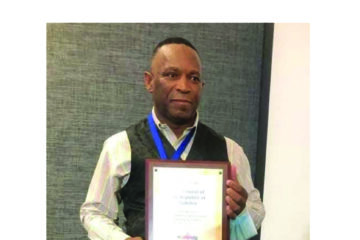Justicia Shipena
Despite global commitment, implementation of the Women, Peace and Security (WPS) agenda remains uneven, President Netumbo Nandi-Ndaitwah said on Thursday.
Nandi-Ndaitwah urged world leaders and regional blocs to strengthen their efforts.
“As we mark this 25th anniversary, we must look forward. Resolution 1325 has laid a foundation, but the task ahead remains urgent,” she said.
“Conflicts across Africa and the globe are intensifying, with women and children bearing the greatest burdens,” she said during the silver anniversary of the United Nations Security Council Resolution 1325, held in Windhoek.
Nandi-Ndaitwah reflected on Namibia’s role in shaping the WPS agenda, saying it was rooted in the country’s liberation history.
“Namibian women have long been active agents of peace, security, and liberation. From the earliest resistance to colonial rule to the liberation struggle that culminated in our independence, women stood shoulder-to-shoulder with men in the pursuit of justice and freedom.”
After years of activism and advocacy by civil society, governments, and international partners, the United Nations Security Council unanimously adopted resolution 1325 on women, peace, and security.
The resolution highlighted the vital role women play in preventing and resolving conflicts and called for their equal participation in peacebuilding processes.
In October 2000, Namibia held the presidency of the 15-member security council. Alongside Mali and Tunisia, it represented Africa on the UN body.
At that time, ambassador Selma Ashipala-Musavyi served as Namibia’s deputy permanent representative to the UN and was deeply involved in the negotiations that led to the adoption of the landmark resolution.
Nandi-Ndaitwah said peace processes too often excluded women.
“Too often, peace deals, particularly those brokered by external actors in our continent, have excluded women as negotiators and mediators. Without women at the table, peace is neither complete nor sustainable.”
She added that women appointed to leadership roles still faced “structural barriers that impeded their optimal functionality”, while civil society groups that drive advocacy often worked with unstable funding.
“Without strong accountability mechanisms, the promises of Resolution 1325 risk remaining aspirations rather than realities,” she said.
Nandi-Ndaitwah called for the agenda to evolve to address new security threats such as climate change, cyber insecurity, pandemics, and migration.
Namibia has established an International Women Peace Centre to strengthen collaboration with global institutions.
She expressed solidarity with women affected by conflict and oppression in Palestine, Western Sahara, the eastern Democratic Republic of Congo (DRC) and Mozambique’s Cabo Delgado region.
“We must remember the women of Palestine who continue to endure untold suffering under occupation, displacement, forced hunger and systemic violence. Their resilience is a testament to the human spirit, yet their pain reminds us of our collective failure to uphold international law and human dignity.”
The anniversary was held under the theme “25 Years of 1325: Honouring the Legacy, Advancing the WPS Agenda” and gathered high-level delegates, including former African heads of state, regional representatives, and global partners.
“Namibia’s role in the inception of resolution 1325 was not by chance; it was an act of conviction and experience, born from our struggle for freedom and dignity,” said minister of International Relations and Trade Ashipala-Musavyi.
Speaking for the Southern African Development Community (SADC), deputy executive secretary Judith Kateera said the region had made progress in institutionalising the WPS agenda but needed to accelerate implementation.
Kateera said sustainable peace required inclusivity and stronger financial support.
“SADC recognises that the women, peace and security sector is the least resourced in national budgets. We therefore urge ministries of finance to prioritise this agenda as they prepare budgets from 2026 onwards,” she said.
She called for partnerships with the private sector, civil society and international organisations to strengthen resource mobilisation.
The commemoration also honoured African women leaders, who inspired resolution 1325.




